Swimming Australia braces for more turbulence with job losses looming due to COVID-19
As Swimming Australia faces the prospect of job losses due to COVID-19, boss Leigh Russell says the criticism the organisation copped over Shayna Jack’s drug test last year has steeled it for all future shocks.
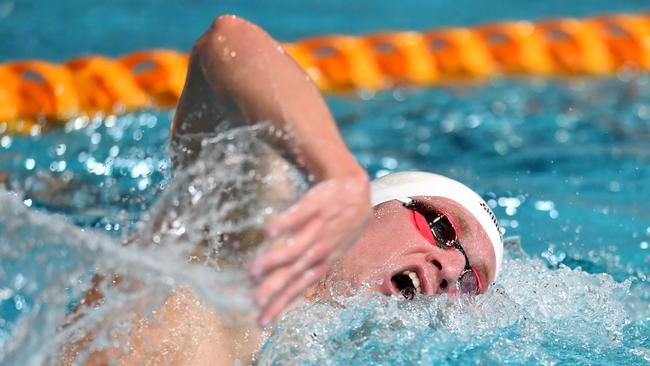
Swimming
Don't miss out on the headlines from Swimming. Followed categories will be added to My News.
Just when Australian swimming thought it was safe to get back in the water, more turbulence is on its way.
Still stung by the criticism around Mack Horton’s podium protest at Sun Yang’s participation at last year’s world championships then Shayna Jack’s positive test, Swimming Australia officials are bracing for more unrest.
This time, they are ready to weather the approaching storm, having learnt a lot from the painful experiences of 2019.
Get your sport fix on – classic match replays, documentaries and the latest news & announcements. New to Kayo? Get your 14-day free trial & start streaming instantly >
Like everyone else, Australia’s favourite Olympic sport is preparing for the economic bite from the COVID-19 pandemic, amid growing fears jobs could be lost when the money starts to run out.
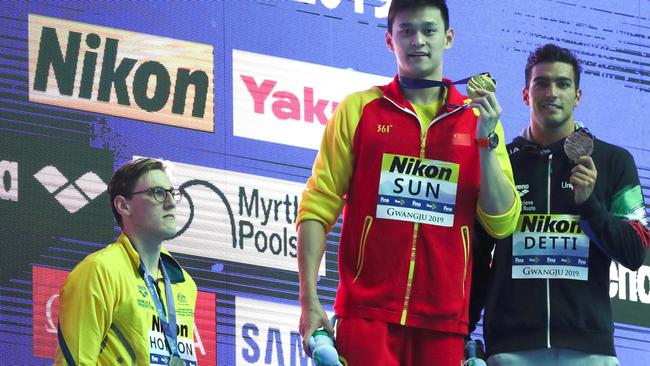
Staff have already been placed on reduced hours and less pay and Swimming Australia chief executive Leigh Russell said more tough decisions about cost-cutting were likely.
“We haven’t had to lay people off yet but like every other sport the next financial year looks ominous so we’re making some really prudent financial choices to make sure that we can keep our team of staff together as much as possible,” she told The Sunday Telegraph.
“The challenge for us is we’ve got the Olympics and we don’t want to compromise our performance and to do that, we’ve got to have a number of things behind the scenes.
“We’ve now got to find the way to keep that as ring fenced as possible but knowing that the world around us has dramatically changed and sport is so fragile.
“It’s a delicate balancing back so we’re trying to do our scenarios and modelling for the next financial year from pretty optimistic to ‘this is Armageddon.’”
While Australia’s elite swimmers have been assured their high-performance funding will continue through to next year’s postponed Tokyo Olympics, other plans have already been placed on hold.
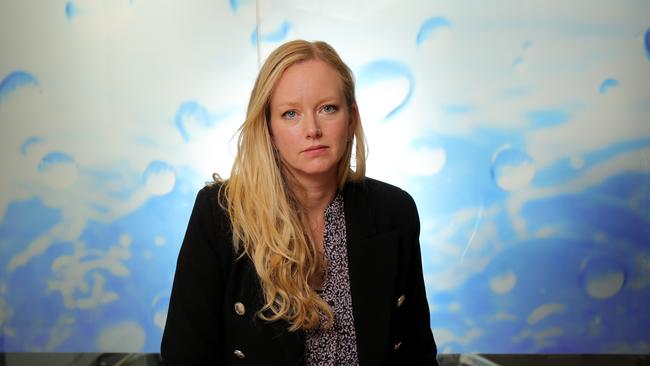
The global recruitment search for a new national head coach after Jacco Verhaeren announced he was returning to Europe in September for family reasons (see below) has been shelved.
Victoria’s Rohan Taylor, who has worked as one of the Dutchman’s key assistants, has been appointed as interim head coach through to Tokyo but the big concern for Swimming Australia is what happens with everything after the next Olympics.
Unlike a lot of mainstream sports that are bankrolled by television deals and crowd attendances, swimming relies heavily on benefactors, particularly mining magnate Gina Rinehart, who is the patron of Swimming Australia.
Australia’s richest individual, Rinehart is expected to continue her long standing support of the sport but there are concerns other corporate sponsors could be forced to withdraw funding even after they stood by Swimming Australia in the aftermath of the world championships.
Russell bore the brunt of criticism last year when the news of Jack’s positive drug test broke but maintains that the right protocols were followed and the ordeal will put the team in good stead for the Olympics even though it was uncomfortable at the time.
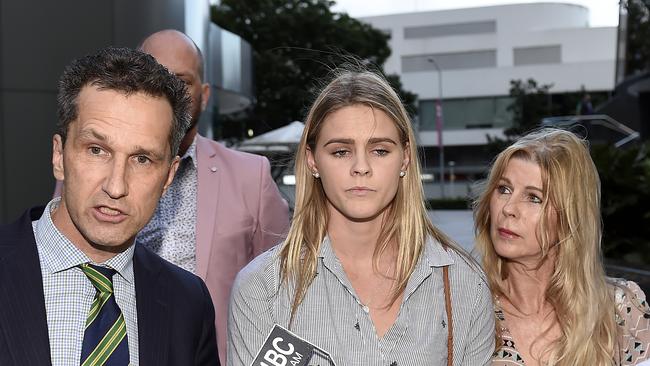
“I'm really glad we went through the experience when we did,” she said.
“One of the things that came out for us was once all the craziness had subsided, 12 months out of the Olympics we just went through something together that could have been a crisis for the organisation.
“Yes I wish that hadn't happened, and absolutely for Shayna I wish she wasn’t in the position she is, but as an organisation it has shown us how much we’ve grown and developed over time and how much we had uncheckered ourselves from history.”
VERHAEREN: NEW COACH TAYLOR-MADE FOR TOP JOB
Departing head coach Jacco Verhaeren has given his seal of approval for Rohan Taylor to lead the Australian swimming team at next year’s postponed Tokyo Olympics, insisting he was the right man for the job after the sport’s toxic culture had been cleaned up.
Verhaeren, who took on the role in early 2014 amid sordid reports of coaches taking part in strip parties, watching porn and binge-drinking sessions, said he did not see any signs of misbehaviour from Taylor or any other coaches during his tenure so was certain those dark days had long gone.
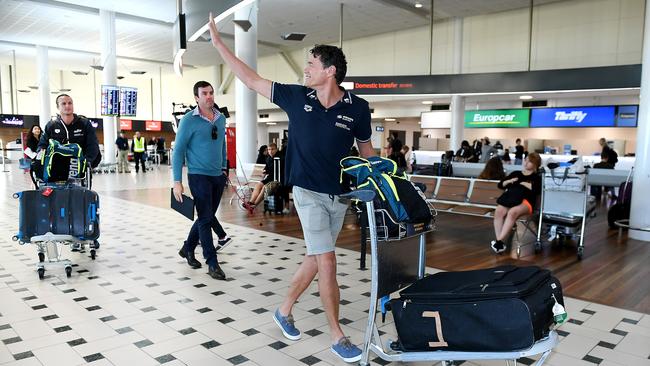
“I have never experienced anything close to what I’ve read about the team before that point in time,” the Dutchman said.
“Actually, they were extremely well behaved, sometimes even too good if you ask me. I thought people may need to loosen up a little bit.”
Even so, Verhaeren – who announced that he was standing down in September to return to Europe with his family – said his proudest achievement since coming to Australia was restoring trust among coaches rather than anything the swimmers did in the pool.
“When I arrived in 2014 that trust was either non-existent or still pretty fragile,” he said.
“Obviously in 2012 and all the occurrences around the team, with the team and with Swimming Australia had taken a massive toll on the trust among coaches, among coaches and the organisation and I think that is something we can all be very proud of at the moment.”
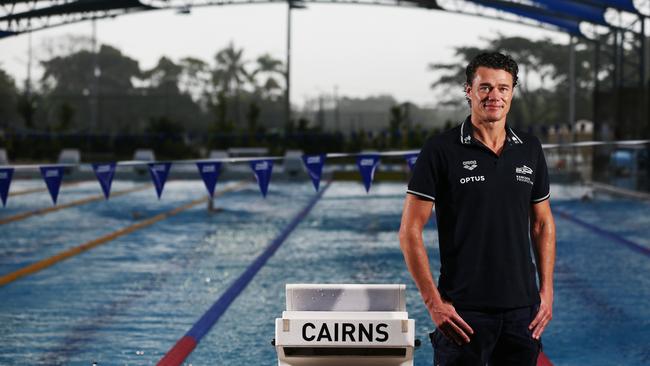
Regarded as one of the world’s tacticians and motivators after overseeing Pieter van den Hoogenband, Inge de Bruijn, and Ranomi Kromowidjojo to multiple Olympic gold medals, Verhaeren was poached by Swimming Australia after a damning review into bullying and misuse of prescription drugs at the disastrous 2012 London Olympics.
In late 2014, less than a year after he took over, another investigation uncovered explosive allegations of coaches engaging in ‘bonding sessions’ at private strip shows between 2002 and 2005.
Taylor himself said he had attended some of the sessions but denied it was an organised event.
“It was legal, people do it all the time at bachelor parties. I am not condoning it, for me I was in my early thirties then with a group of guys,” Taylor said in 2014.

Highly regarded within the sport, Taylor coached Leisel Jones to Olympic gold in Beijing in 2008 and has been involved in a range of coaching roles ever since, with Verhaeren vouching for his promotion as head coach.
“He’s well known with the coaches, he’s coached an Olympic gold medallist himself, he’s been there for years,” Verhaeren said.
“He’s played various leadership rules also in ASCTA (Australian Swimming Coaches Teachers Association) and the coaches’ organisation in Victoria and the like, and with his current knowledge with how we run the strategy et cetera, I don’t think there’s an issue at all.”
Appointed initially for one year, Taylor said he had learnt a lot from working with Verhaeren.
“I think it’s just my natural growth as a person in our sport,” he said.
“When I was coaching it was all about me and all about my athletes and I didn’t really give a rats’. That was what my job was to do.”
Verhaeren’s existing contract was due to expire in November but the Dutchman brought forward his departure date because he could not commit to the 2021 Olympics after promising to take his young family home after they had been living on the Gold Coast.
After winning just one gold medal at London, Australia’s swimmers won three at the 2016 Rio Olympics under Verhaeren and bigger stockpiles at the Commonwealth Games and world championships.
Originally published as Swimming Australia braces for more turbulence with job losses looming due to COVID-19


